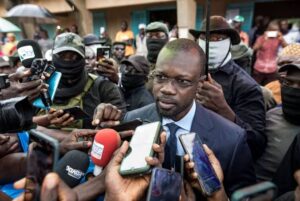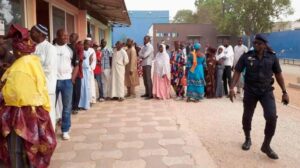As Senegal prepares for its presidential election on February 25, the international community watches closely, anticipating potential challenges in a country often regarded as a beacon of stability in West Africa, amidst a region plagued by coups.
With an unprecedented 20 candidates, including an imprisoned anti-establishment contender, there’s no clear frontrunner, adding an air of unpredictability to the electoral landscape. Notably, President Macky Sall decided not to seek a third term, marking the first election without an incumbent standing.

Also, read; The Floating Village of Ganvié – A village in Benin called the “Venice of Africa.”
The uncertainty extends beyond the electoral outcome. Senegal, home to approximately 18 million people, is among the bottom 30 countries on the UN Human Development Index but anticipates hydrocarbon production this year. While it boasts a history of stability, democracy, and peaceful power transfers, recent unrest stemming from the stand-off with opposition figure Ousmane Sonko has raised concerns.
Sonko’s clashes with the state since 2021 have resulted in deadly incidents and hundreds of arrests. Human Rights Watch and others criticize Senegal for suppressing opposition leaders, media, and civil society. The government, however, contends that all freedoms are exercised without hindrance.
 President Sall’s strong ties with the West become crucial as Russia’s influence grows in the Sahel, and neighboring countries grapple with militia insurgencies. Senegal’s election outcome will not only shape the nation’s future but also holds significance in the broader context of West African stability.
President Sall’s strong ties with the West become crucial as Russia’s influence grows in the Sahel, and neighboring countries grapple with militia insurgencies. Senegal’s election outcome will not only shape the nation’s future but also holds significance in the broader context of West African stability.

